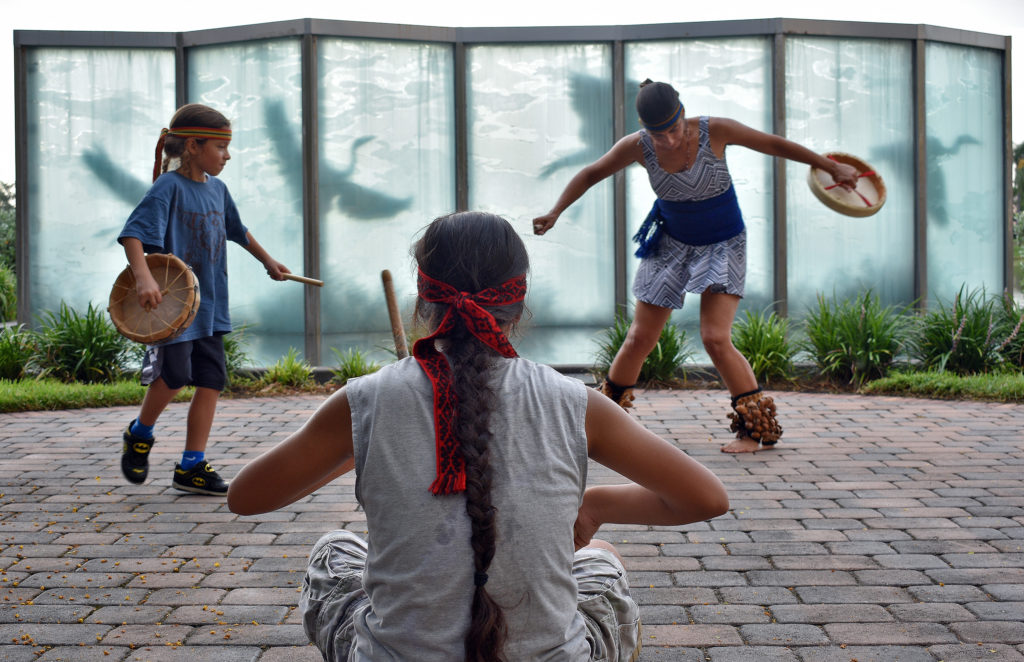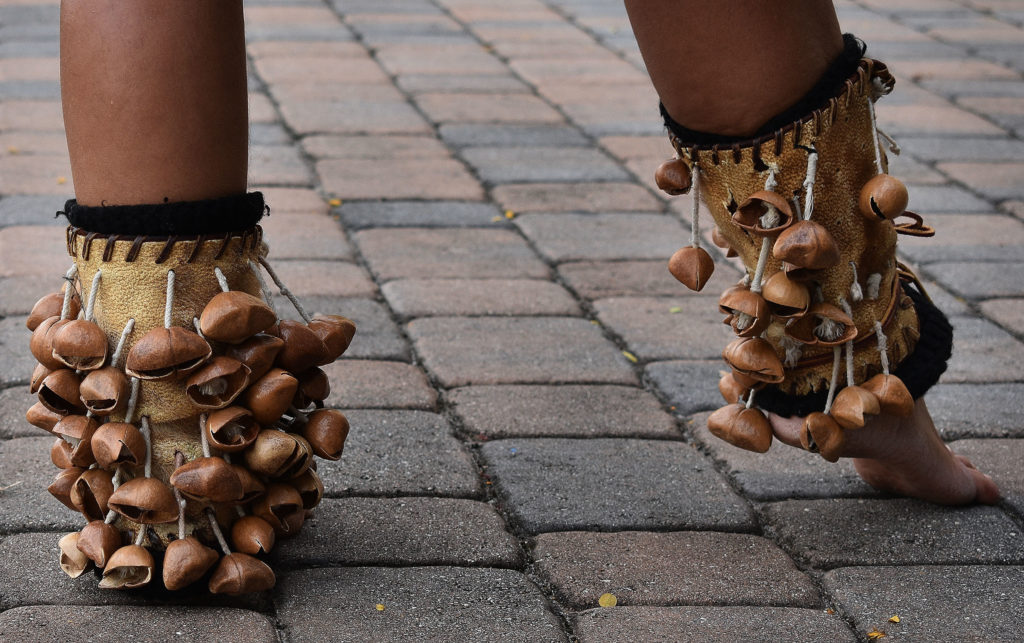‘That is what sets us apart’: Maya immigrants say their identity doesn’t fit in any box

Tribal drumming echoes off outer walls of buildings behind the Miramar Cultural Center. Wooden seed pods clink together like a rhythmic rain. As Tara Chadwick rehearses a traditional mesoamerican danza with her two sons, the pods around her ankles shake.
Chadwick — a Canadian-born woman with roots in Belize, is Maya. She’s part of a shared culture of indigenous peoples in Mesoamerica, which sprawls across parts of southern Mexico, Guatemala, Belize, El Salvador and Honduras.
Her first danza honors the cardinal directions, with movements and words addressed to each. To the west, for equality. To the south, for justice.
“[It’s] to call all the warriors,” Chadwick said. “To let them know we’re getting ready to dance now.”
Her words are spoken at a time when U.S.-Mexico border is apprehending hundreds of thousands of Central American immigrants — and Guatemalans have been the largest group, the U.S. Border Patrol told the Associated Press.
And while they are suffering through the fraught and increasingly political immigration process, the Maya and other indigenous groups face another unforseen barrier: language.
Some are not fluent in Spanish and instead speak native Maya or one of its many dialects. Immigrant groups put out a call in June for indigenous interpreters to help with the deluge of non-Spanish speaking immigrants.
Geographically, indigenous people from mesoamerican countries are lumped in with Latinos from those same nations. But they have a culture uniquely their own, and often hesitate to identify as Latino.

“We’ve always identified us as Mexican when in actuality we should identify as Maya, because that is what sets us apart,” said Frank Blanquet, a producer for First Nations Experience, a TV-network dedicated to Native American and indigenous programming.
When Chadwick, the dancer, was applying for colleges, she was faced with applications and forms that asked her to check a box.
One was labeled “Hispanic.” She didn’t identify that way.
“In America, particularly in the United States of America, I think that identity has been really oversimplified,” Chadwick said. “I’m an indigenous woman of English, Mayan and African descent.”
In the time since, she’s learned to embrace that multifaceted identity.
She studied Spanish in college. She started her own business, that allows her to share her Maya culture through danza performances across South Florida.
“I think it all comes back to me wanting to learn about myself from my own perspective,” Chadwick said. “Even with all those perspectives trying to tell me who I am.”

Blanquet isn’t a member of the National Association of Hispanic Journalists. He chose, instead, to join the Native American Journalists Association.
In his 20s, Blanquet also felt the call to explore his indigenous heritage. Traveling the U.S. as a journalist and documenting various Native American tribes took him back to conversations with his uncles and grandfathers — the elders who taught him Maya and instilled in him a sense of pride in his culture.
“They’re all gone now,” Blanquet said. “And so these are cultural ties we’re losing.”
“I feel like part of that community. You know, I don’t I don’t feel like I don’t belong,” Blanquet said. “I actually feel that the work that I do is very much … a representation that I think is missing, in a sense, in NAHJ. And I hope that that grows.”
For Blanquet and Chadwick, exploring and preserving their culture is more than a pastime or a part of their job.
It’s a way to show the world — and themselves — who they are.
Email: latinoreporterofficial@gmail.com
Twitter: @RianeRoldan